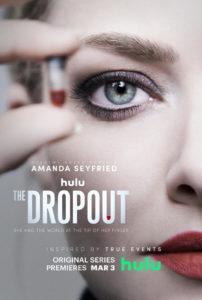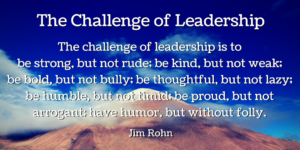
Dropout is the mesmerizing story of Elizabeth Holmes and Theranos.
We’ve been watching two fascinating series about wayward entrepreneurs on Showtime and Hulu.
“Super Pumped” is the story of Uber and its “tech bro” founder Travis Kalanick. “TK”, as he was known, broke a lot of dishes while disrupting the taxi business before being dumped for creating a culture more toxic than sucking on the tailpipe of a Checker cab.
“Dropout” is the fascinating story of Theranos founder Elizabeth Holmes who modeled herself on Apple’s Steve Jobs— except for the fraud part. She will be sentenced this fall for essentially lying her way to the top before taking a fall. Her black turtleneck didn’t save her from the fact that her company was built on…well…nothing but hype.
Yes, it seems that Hollywood is taking a dim view of entrepreneurs lately. The trend goes back a decade or so to the “Social Network” which portrayed Mark Zuckerberg as an egomaniacal, socially awkward techie who climbed over a lot of people to build Facebook into a global behemoth. In other words, the movie was spot on.
Also, a fit for the evil entrepreneur narrative: “WeCrashed”, the story of WeWork founder Adam Neumann, who ran his $47 billion company off the rails before being given his walking papers. We can also look forward to “Billion Dollar Whale” a soon to be released movie about Jho Low who looted the Malaysian sovereign wealth fund before disappearing somewhere in China. He remains at large. But he did take down a government and ensnared Goldman Sachs during his memorable run. In a quirk of fate, I got to know one of the major players in that scheme, but I’m saving that story for my next book. It’s a good one.
Yep, there sure are some cautionary tales about gifted grifters whose magnetism, vision, and ability to tap into greed makes for great books and movies and in most cases bad businesses. The jury is still out on Facebook while Uber and WeWork seek to move past the dubious behavior of their founders.
But the evil entrepreneur narrative doesn’t tell the whole story.
Yes, there are villains in the world of entrepreneurship, but there are lots of heroes too. I wish Hollywood would publicize their work as well—in many ways they are more interesting if not as salacious.
Admittedly, I am biased, but I work alongside a very kind entrepreneur named Carl DeSantis. He built Rexall Sundown from scratch into a huge vitamin manufacturer right here in Boca Raton before selling it for $1.8 billion in 2000. Rexall Sundown employees shared in the wealth they created—which is Carl’s way. While most people would have retired after such a huge exit, Carl went back to work, creating a family office and investing in companies and people. His latest hit is Celsius, a wildly popular healthy energy drink that trades on NASDAQ. Celsius started in Delray Beach before moving to larger headquarters in Boca Raton. But when Celsius rang the bell on Wall Street, Carl was onto the next thing—Tabanero Hot Sauce, which we are working hard to make a hit. Make sure to try it at Caffe Luna Rosa and Christina’s among many other restaurants.
Another good guy entrepreneur is Delray’s very own Randy Smith, who runs Heritage Flooring. Randy is a serial entrepreneur with a curious mind that I deeply admire. I’m lucky to call him a friend because having lunch with Randy is like going to business school with salad dressing (always on the side).
Randy and his wife Lennie, have a passion for sailing (and life itself) and I’ve been taken by their devotion to an organization called Warrior Sailing (www.warriorsailing.org) which provides maritime education and outreach for wounded, ill, and injured service members and veterans. Warrior Sailing reconnects veterans to the camaraderie and teamwork they previously found in military service.
While Randy and Lennie certainly know how to have fun, the Wolf of Wall Street has nothing to worry about from these two. They run a much cleaner ship.
We understand it is fashionable around these parts to bash developers. But like we’ve been saying, there are good developers and there are bad ones. We need the good ones because their entrepreneurship creates the vibrancy we rely on to make our cities work.
Along the way, I’ve known a few good ones (and a few bad ones too) and my company has dabbled a little bit in this world— as investors anyway. I can say that the development business is not for the faint of heart. Yes, there are great rewards if you do a good job, your timing is right and there’s a market for your work. But there is great risk as well—and mistakes can wipe you out, so can interest rate hikes, pandemics, hurricanes, bad politics, changing tastes and construction costs.
You must be a great entrepreneur to swim—and not sink— in those waters. Still, I know several developers who are very philanthropic, community minded and work hard to serve their communities.
Meanwhile, some of the best entrepreneurs I’ve met are in the restaurant biz.
Talk about a tough road.
The competition is fierce, the margins are small, it’s hard to build and keep a staff but somehow, they figure it out.
Fran Marincola and his father started with a small gelato shop on A1A in Delray and built it into Caffe Luna Rosa, a Delray landmark. CLR— as some of us call it— offers health insurance to its employees and the restaurant has given back a lot to Delray Beach over the years.
Same goes for former Boston’s on the Beach proprietor Perry Don Francisco, co-founder of Delray Citizens for Delray Police. For 30 plus years, Perry has quietly been there for so many people while being a steadfast supporter of police, fire, and local schools. He’s one of a kind; a gifted, hardworking entrepreneur.
I can think of dozens of examples of talented entrepreneurs who are role models as well.
So, as much as we are enjoying the drama behind the creation of Uber and Theranos, we are heartened by the good guys. They are everywhere. You just have to look.
And when they cast the part of Randy Smith in the Netflix version of his story (the series should be called “Floor It”) I hope they consider Brad Pitt for the role.
Facts about entrepreneurship:
America just witnessed the biggest business startup boom of our lifetimes.
- 5.4 million people applied for small-business licenses last year — a 53% jump from 2019, pre-pandemic.
- Global investment in startups shattered records in 2021, hitting $643 billion — 10x what it was 10 years ago.

